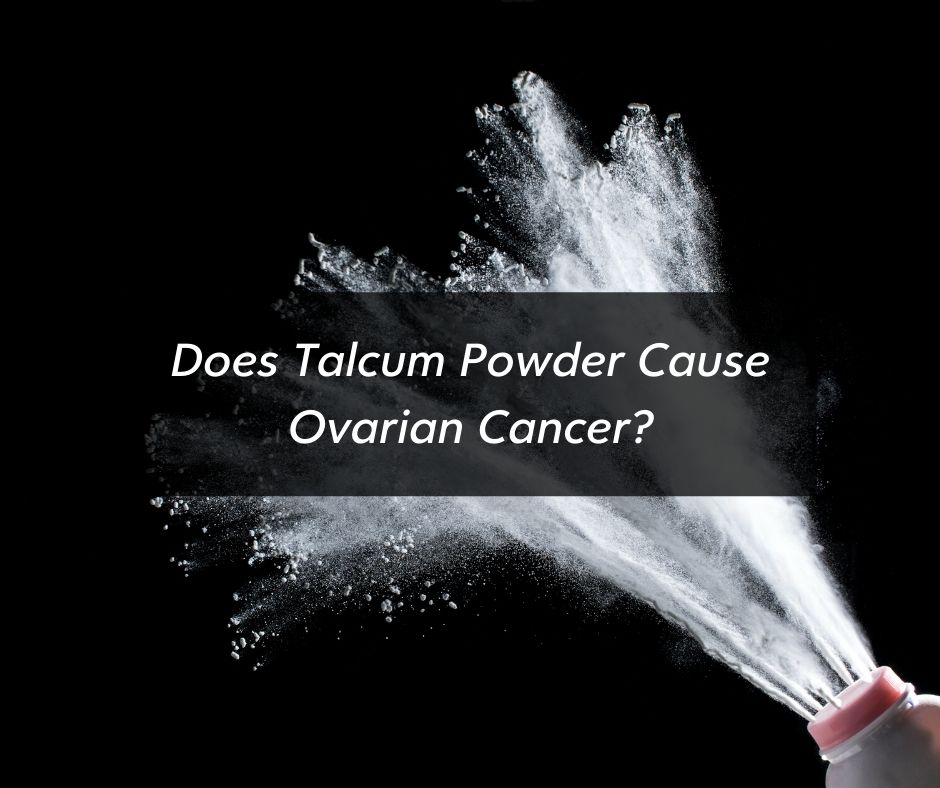
In the past year or two, discussion of talcum powder’s link to ovarian cancer has been everywhere. Talcum-based baby powder has been used by women and small children since the early 1900’s, and it’s safe to say that millions and millions of people have been exposed to it over the past century. It’s no surprise that recent studies have people talking about the product and whether it’s safe to use anymore. The question is: does talcum powder really cause ovarian cancer?
What Is Talc?
First off, what exactly is talc? Talc is a clay mineral that is widely used in baby powder. On the Mohs scale of mineral hardness, talc is classified as being the softest mineral possible. Its this level of softness that has made it so popular in baby powder. The two most popular forms of baby powder are a talcum powder base or a corn starch base.
Talcum Powder’s Controversial History
As early as the 1930s, there have been records of the potential harmful effects talc can have on the human body. It wasn’t until the 1970s that talcum powder was first linked to ovarian cancer and tumors. In 1971, scientists discovered particles of talc embedded in 75% of ovarian tumors. You can see that fear over talcum powders harmful effects is hardly a new one. It has been studied by many scientists for several decades now.
Talcum powder doesn’t affect women alone. Pediatricians have warned parents of the danger of talcum-based baby powder for decades now. Talcum baby powder has been linked to infant deaths since the 1960s. The inhalation of talc can lead to lung damage or chronic disease in babies. It begs the question: why use talcum powder at all?
Talcum Powder and Ovarian Cancer
So, now the real question: is the use of talcum powder leading to the diagnosis of ovarian cancer in women? We’ll turn to the experts to answer that question. According to the National Center for Health Research, there is a continually growing pile of evidence that has linked women’s use of talc for feminine hygiene purposes to higher rates of ovarian cancer.
- Studies show that women who have used talcum powder are around 30% more likely to be diagnosed with ovarian cancer than women who have not
The International Agency for Research on Cancer classifies talc as a possible carcinogen to humans when used genitally. While many studies are still ongoing, there is more than enough reason to view talcum powder usage as a serious risk.
Many companies that provide baby powder are now placing warning labels on their talc-based products. It’s clear that people who use these products should be given the appropriate information before deciding whether or not they want to use these products personally. However, not every company has done so.
Johnson & Johnson Baby Powder Lawsuits
While other companies have attached warning labels to their baby powder products, Johnson & Johnson has not. Johnson & Johnson is a massive, multinational corporation that specializes in pharmaceutical goods for consumers. They are one of the world’s largest producers of talc-based baby powder. Despite growing evidence linking talcum powder to ovarian cancer, the company refuses to put any warning labels on their products. In fact, they’ve aggressively fought back against the notion every step of the way.
- Johnson & Johnson is currently facing more than 14,000 lawsuits linking its baby powder to cancer diagnoses
- In 2018, a jury awarded a $4.69 billion ovarian cancer verdict
Thousands of lawsuits are still pending against this gigantic corporation, and the problem doesn’t look like it’ll slow down anytime soon.
How Can a Talcum Powder Attorney at Brooks Law Group Help Me?
Were you diagnosed with ovarian cancer after using talcum powder? If so, the team at Brooks Law Group wants to help you. You deserved to know the risks that have been studied over the past several decades. Our experienced staff and attorneys can help fight for your rights. We serve the entire state of Florida from our offices in Tampa, Winter Haven and Lakeland.
Do you meet the criteria below?
- Genital Talc used daily for a minimum of 4 years
- Diagnosis of Ovarian Cancer or Invasive Fallopian Tube Cancer
- Diagnosis at age 21-80 years old
- Diagnosis occurred after 2005
Call our offices today at 1-800-LAW-3030 or fill out the online ‘Contact Us’ form located above on our website. You’ll receive a free, no obligation case evaluation from one of our attorneys. If we don’t win your case, you won’t owe us anything. Don’t wait, call today and visit our personal injury lawyers firm in Tampa. Look to Brooks!
This post was originally published in November 2019 and has been updated for accuracy and comprehensiveness in June 2021.














